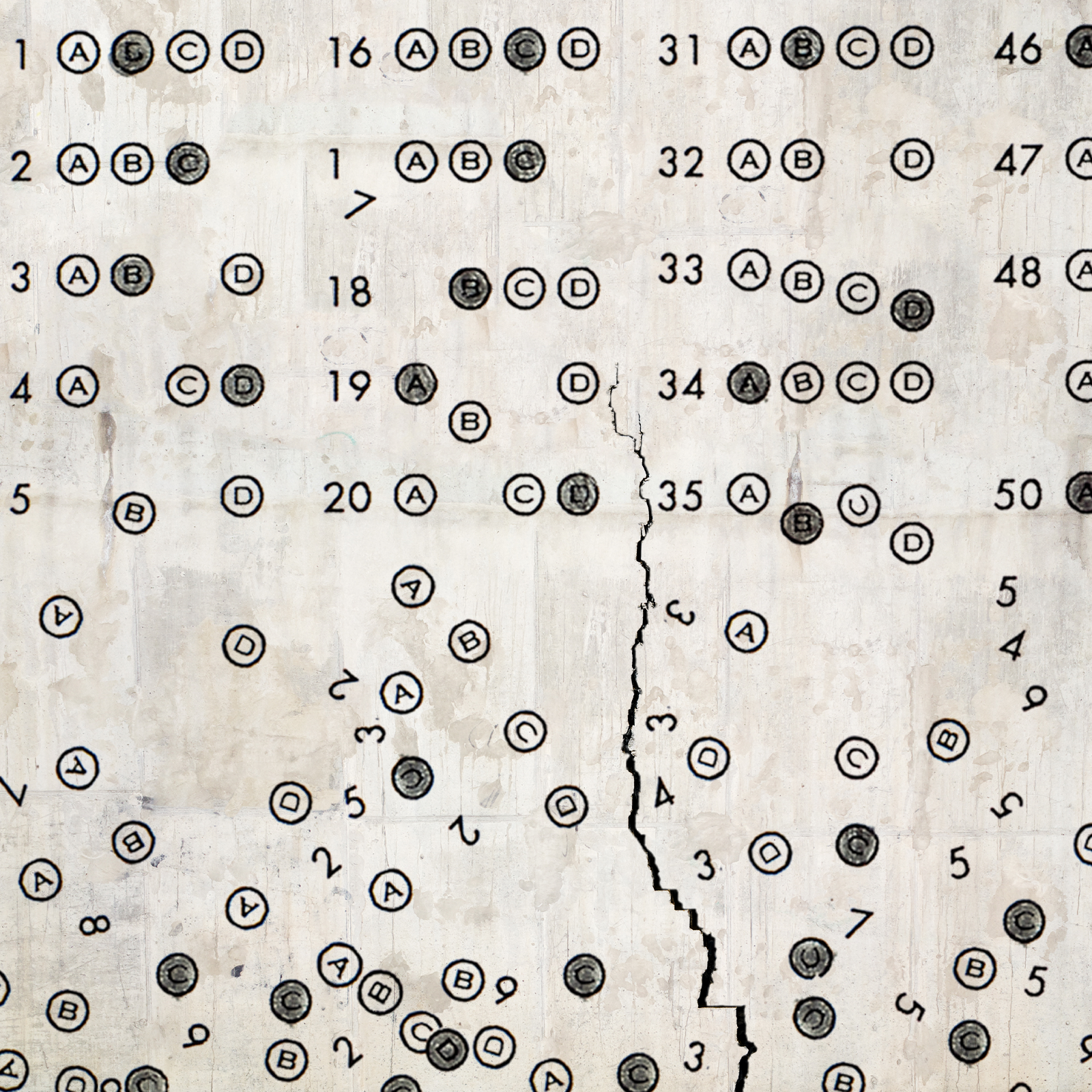This article originally appeared on our substack
Earlier this month, a committee of the American Bar Association recommended that law schools drop the Law School Admissions Test (LSAT) as a requirement for their admissions process. This follows a trend at undergraduate institutions—now numbering over 1,800—which have waived ACT and SAT requirements for Fall 2022 admissions. This includes prestigious universities like Harvard, Yale, Princeton, the University of North Carolina, and the University of California. In abandoning the tests, many of these schools cited criticism that the tests favor wealthier students.
Many progressives have largely welcomed this news. Prominent figures on the left have long argued that these tests are tools of the elite. Some have gone further, arguing that the exams are racist: “The use of standardized tests to measure aptitude and intelligence is one of the most effective racist policies ever designed to degrade Black minds and legally exclude Black bodies,” argued Ibram X. Kendi.
“The standardized tests confer privilege on the already advantaged and stigmatize those who have the least,” wrote Diane Ravitch. “Standardized test scores are highly correlated with family income and education. The students from affluent families get the highest scores.”
The correlations Ravitch describes are real. But do you know what else correlates with family income and education? Every alternative to standardized tests. This includes GPA, extracurricular access, the quality and quantity of letters of recommendation, college admissions editing and assistance, and connections to admissions offices. At least standardized testing is transparent and consistent. A student in Harlem is taking the same test as a student in Scarsdale. And though they won’t have the same access to resources to prepare, the tests are evaluated using the same criteria. The same can’t be said of many of the alternatives, which have all of the same resource inequities, but none of the objectivity on the back end. A student can have a 4.0 GPA at their zoned public school but may face college admissions officers who don’t respect that score as much as a 4.0 GPA at an elite private school. If that Harlem student sat for the same test and did better than that kid in Scarsdale, then that student from Harlem will get the admissions officer’s attention.
As for the argument that the tests are racist, here’s John McWhorter:
[T]oo often, the message being communicated to Black and Latino people is that our presence is what matters, not our performance. I am uncomfortable, for example, with the domino-effect elimination of standardized testing requirements in university admissions policies across the country. . . . Is it that the tests ask racially biased questions? Which ones? Is it that it is somehow unfair to give a Black or Latino student a test of abstract cognitive skill and that Black and Latino students should be tested differently? This would seem dangerously close to saying that they aren’t as intelligent as others. If that isn’t the intention, then is the inference that there is something cultural, broadly speaking, that hinders their ability to perform well on these tests? If so, what?
Seen in this light, it’s not the tests that are racist so much as the very progressives who argue against them. Critics of the tests flirt with arguments made by the most ardent white supremacists.
McWhorter argues that the “domino effect” of removing standardized tests from college admissions will only serve to hurt students of color and help the privileged. I share this concern, as I saw firsthand the power of these tests when I was a school principal to a mostly low-income Black and Brown student body in Nashville. The ACT gave our students a common measuring stick to prove they were more capable than students in fancier private schools or wealthier suburbs. The test was a key factor in getting our students into schools like Princeton and Vanderbilt. In the admission process, subjective measures such as extracurricular activities, letters of recommendation, and even GPAs (which vary wildly by school and are prone to massive grade inflation) are routinely used against students from less elite high schools. While our students couldn’t have a connected college counselor call over to the right admissions officer, no one could argue with their test scores.
Another common critique is that standardized tests fail to tell us a full story of an applicant. Are they creative? Do they have strong character? Are they a leader? These are important questions that should be asked in the admissions process—and there’s no reason those questions should be mutually exclusive with standardized tests. No college or university I am aware of uses only tests in their selection process. Standardized tests, as currently used in admissions processes (and in the K–12 system), are akin to a blood pressure test. Your blood pressure tells you important information (and whether you should be concerned) but doesn’t tell you everything you need to know about your health.
It’s worth remembering that when Harvard (allegedly) wanted to get around too many Asian Americans gaining admission to their school, they gamed subjective measures to dilute the impact of standardized testing. The plaintiffs in Students for Fair Admissions very well wouldn’t have had a case without the existence of inconvenient standardized testing data.
Standardized tests weren’t just critical to my students’ success—they were also central to mine. I was a screw-up in middle school and high school, suffering from substance abuse issues and frequently cutting school. I was even arrested in high school. Because of my performance on the SAT, I was able to get into Binghamton University, which was a bit of a stretch for me, and it was there that I turned my life around. When I applied to law school, it was once again a standardized test, the LSAT, that helped me get into my dream school, Yale Law School. I had a 4.0 GPA but faced long odds. No Binghamton student had been accepted to Yale Law in over a decade. Admissions officers clearly didn’t respect a Binghamton GPA, but they couldn’t dismiss my LSAT score.
And if it wasn’t for a series of standardized tests, I wouldn’t exist.
My father was born in 1953 in the rural Indian town of Sahatwar on the Ganges River Plain. He was the youngest of nine children to a father who had folded up the family business, a textile importing company, to show solidarity for Gandhi’s boycott of British cloth. That move thrust my family into a life of poverty. Despite having no formal education and limited means, my grandfather imparted to all his children—my dad included—a relentless focus on academics. My grandfather was obsessed with schooling as the only way out of their poor and isolated rural life.
My dad, like his siblings before him, rose to his father’s expectations. When he sat for the terminal examination for secondary school (the Indian equivalent of the SAT) he scored 11th out of more than one million students. Though he was clearly an exceptional student, he was rejected from the state-run medical schools due to a corrupt admissions process that favored the wealthy and connected. His only shot was the more selective federal medical school admissions process. Admissions to federal medical schools were based solely on India’s national standardized exam for medical admissions, the Pre-Medical Test. My father rocked that test and, at the age of 17, he was granted admission to the highly competitive Banaras Hindu University. In a few years, he moved to the United States, catapulting from one of the poorest places on earth to the richest.
I often ask myself where he would be if it weren’t for that test. He wouldn’t be a doctor, and he may not even be alive. The life expectancy in India is 69 years, which is precisely the age he is now.
*****
Over the past decade, I’ve watched as the party of Obama – which recognized the power of these assessments, from elementary school to college – has been largely replaced by critics of testing from the so-called “progressive wing.” Many of these newly prominent education leaders of the left locked arms years ago with the extreme right during fierce debates over the Common Core curriculum. They won some minor battles back then, but nothing compares to how far they’ve gotten over the past year.
The world they want – one we’re fast approaching – has no objective measures for college admissions. In that world, we’ll have no reliable way to compare a kid from a Title I district school to a student at an elite boarding school. Testing critics paint that as a win for the Title I kids. But I continue to believe the most vulnerable can outperform the most privileged if you give them a path. Those tests were more than a tool for admissions officers; they were a tool for educational transparency. The data they provided allowed us to hold those schools accountable when they admitted less qualified rich kids. Now, we’ll just have to take their word for it.




